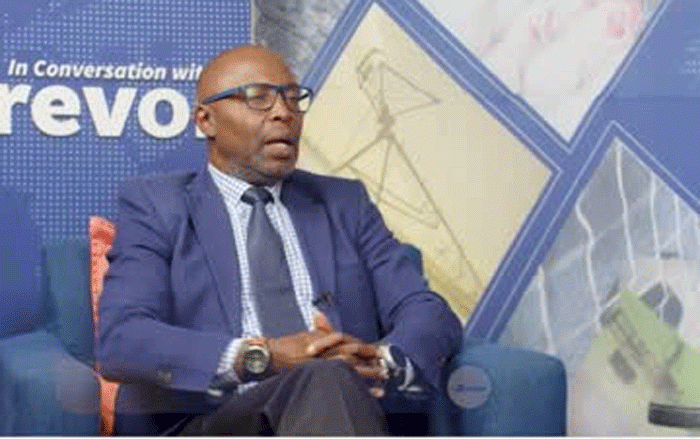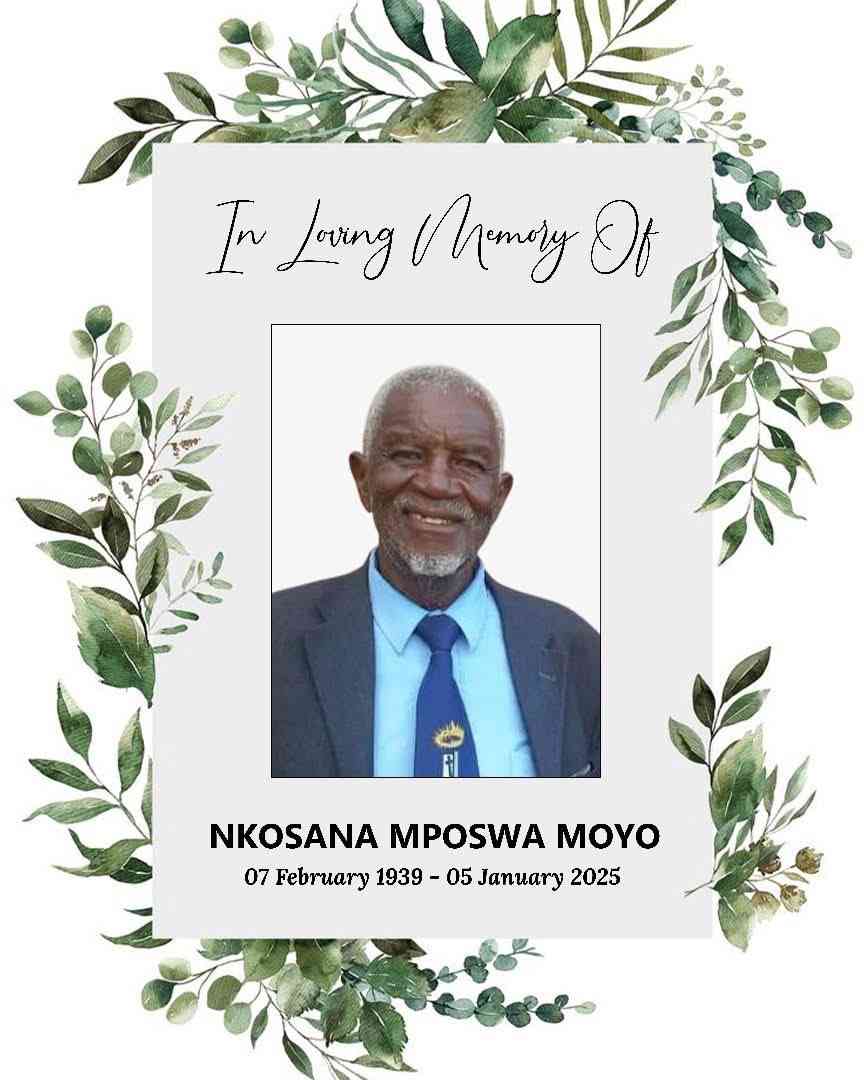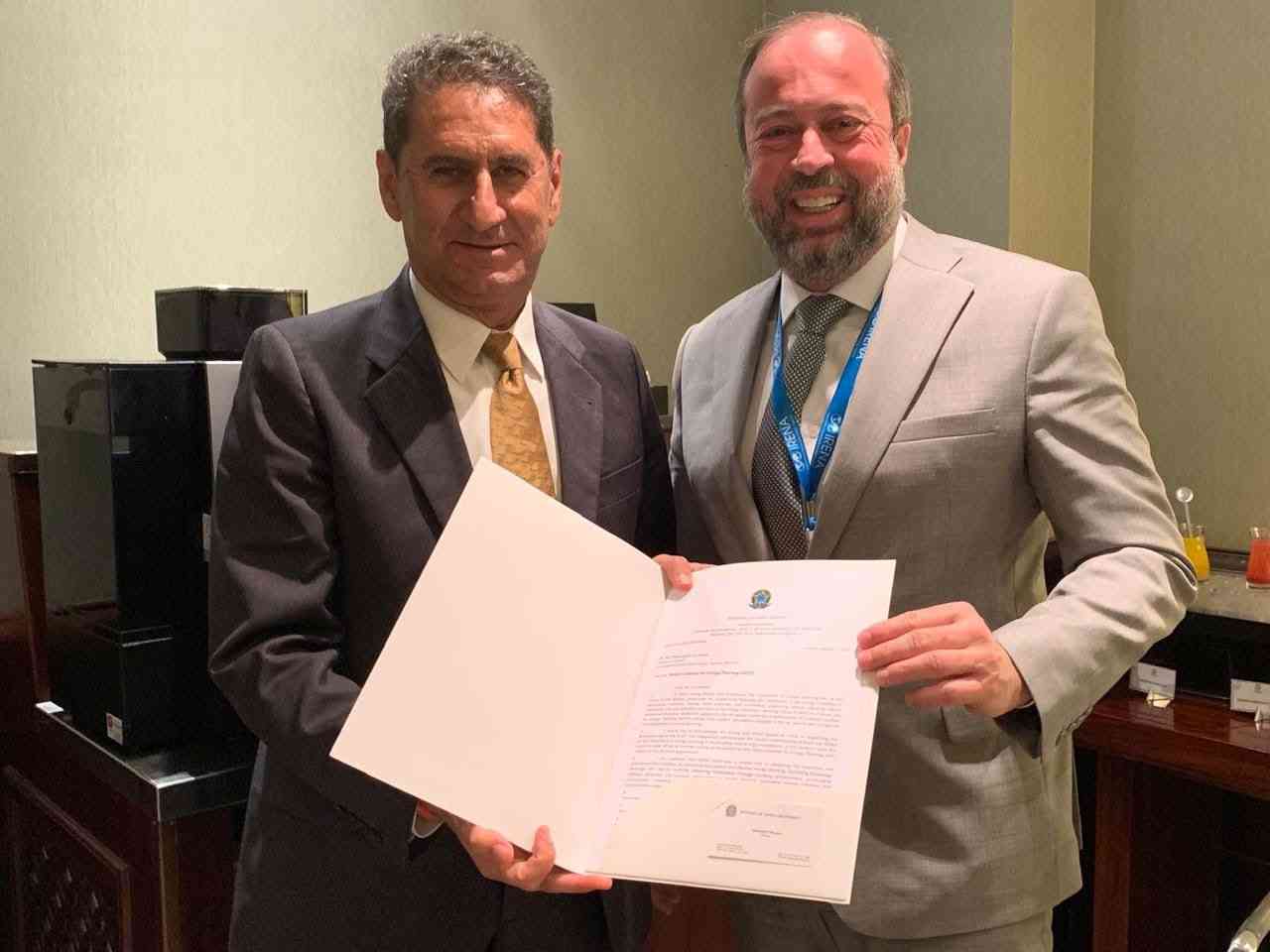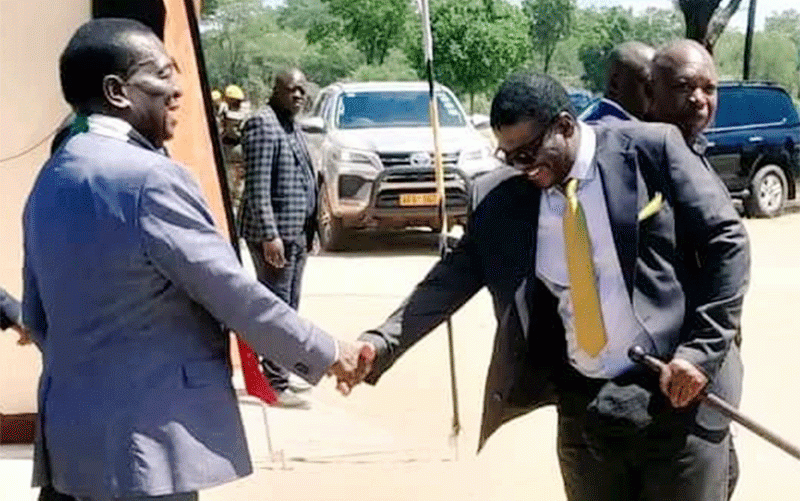
Consultant urologist Dr Allen Chiura says the biggest lesson he learned from his late father and prominent business executive, Enos Chiura, was never to let anybody else define who you are.
Chiura (AC) told Alpha Media Holdings chairman Trevor Ncube (TN) on the programme In Conversation with Trevor that he had taken that same lesson throughout his life and managed to succeed in his medical journey despite predictions by sceptics that he will flounder as an African studying in a foreign land.
Below are excerpts of the interview
TN: Dr Allen Chiura, welcome to In Conversation With Trevor.
AC: Thank you Trevor, pleasure to be here. Thank you.
TN: I am so excited to be chatting to you, because you are an interesting person. As I was looking at your CV, and then listening to the podcast that you sent me, thank you so much for that.
I was like this is such a rounded human being? You are a medical doctor, you play golf, you are interested in the Culture Fund, you have been part of the Sports Commission.
- In Conversation with Trevor: Chisamba: Let’s be proud of ourselves
- In Conversation with Trevor: ‘I tried to change Zanu PF from within’ – Margaret Dongo
- In Conversation with Trevor : How car crash changed my life
- In Conversation With Trevor: ‘We lost our humanity’
Keep Reading
You have introduced me to a very interesting trust, the James Kapnek Trust. We are going to talk about that. You sit on the board of Pulse Pharmaceuticals.
You are a father, married to beautiful Nozipo Maraire, and I say to myself...
Perhaps, before going there, you have just come back from witnessing your daughter's graduation?
Tell me about that experience?
AC: A very emotional one. My eldest daughter, Tinashe, attended Bennington College which is up in Vermont. My other child is in Canada. It is so cold where she did a degree in Digital Media and French.
To be able to go to your first child’s graduation I think is very special. I feel immensely blessed and immensely grateful.
It has been a journey of note; we were not sure how this was going to play out, because if you remember we were in the US for 30 years.
TN: We are going to go there.
AC: And we packed up the kids you know, yeah she was only 12- years-old, and moving them from one place to another, we were not sure how it was going to work out, but it was just as parents we were immensely proud yeah.
TN: You have got four children?
AC: Yes, we have four.
TN: Just break them down?
AC: So, we have Tinashe, Tulilani is the next one, and she is at my alma mater in Washington DC at American University. She is studying English literature, Philosophy and Theatre.
TN: Wow.
AC: And then the next one is my eldest son Janta, he ended up finishing high school in Spain.
So, he just graduated from Soda Grande International School in Spain, and is going to be attending Rollins College in Winter Park Florida to start his degree in entrepreneurship.
Then our youngest one is at St George’s, again my alma mater, who is in Form 3. That is Taonga.
TN: Wow. You must be a proud father?
AC: Very proud.
TN: One of the reasons why I thought we should have this conversation is your father, the late Enos Chiura, who was a role model to me.
When I was a journalist he would call me up when I got things wrong and he would say younger brother come and see me, and then I would drive from Charter Road to Delta Corporation.
Then he would sit me down and say you got it wrong here, then afterwards we get up, either we have a meal in the boardroom or a cup of coffee and he would walk me through.
He was very patient with me, he taught me a lot.
Your father represents a generation which unfortunately we are losing, but a generation, which for a lot of us were role models and I am just going to run a couple of names.
Charles Utete, Bernard Chidzero, Ariston Chambati, Professor Kahari, Dr Sadza, my former boss Elias Rusike, Dr Robin Powell, Sam Gozo.
You had an amazing father, amazing pedigree. Tell me about the man and your relationship with the man?
AC: You know he was, as you rightly say, he was an amazing human being.
Sorry I am going to get a little emotional here. Sunday was the first Father's Day without him, so it was a little difficult.
Most people do not know, this is a man who grew up in a village, he started in a village.
Got through the Standard Six that you know you were allowed to get through at that time, and the only thing that was available to him at the time was carpentry.
So, he was a carpenter. After doing carpentry, because he always wanted to further himself became a teacher.
And through the teaching studied and then eventually got acceptance to the University of Zimbabwe.
He was a much older student. In fact, I remember when the late John Robertson passed away last year, he was my father's classmate, but yet my father was probably 10 years older than he was.
And that is how it was. From there he ended up getting a scholarship to go to University in Manchester where he did a Master’s degree, and that is where I started school. At the time I was an only child.
TN: There are two of you?
AC: I have a younger brother Munyaradzi.
TN: Where is Munyaradzi?
AC: He is here, he is local. He works for a an Edutech U.S.-based company.
Then we came back, and then my father started at National Breweries and literally rose through the ranks, and eventually becoming chairman of that company.
But growing up in that man's house, he was extremely strict as was my mother.
My mother was the ultimate disciplinarian. When things had to be handled, it was my mother that handled them.
I was a handful, I apologise to my mother now, Amai I am sorry. I hope I made up for it.
I was a handful, but they were patient. I mean they really understood the long game, and I think as parents that is something we really have to understand.
Not all of us mature at the same time. Some take a little longer than others.
I think my wife would be a better person to state this, but I believe that the male brain finally achieves full maturity at about age 25.
So be patient with especially your sons, but be patient with your children, and my parents were very patient.
TN: You say he played the long game, they played the long game, and look at where he started?
The getting of an economics degree from the University of Zimbabwe, and then getting a scholarship to go outside?
Tell me what lessons have you held on imparted to you by your Dad?
AC: Probably the biggest one is to never let anybody else define who you are.
They tried to throw him in a box on multiple occasions, saying you cannot do this, you are black.
You cannot do that; you have not got enough of this and that. I have taken that same lesson throughout my life.
I mean when I think about my medical journey in the United States, getting into medical school as a foreigner at the time was very difficult.
They told me when I was in an undergrad saying you are never going to get in, do not even apply. I applied, I got in.
As I was finishing medical school I wanted to be a urologist, they said you know foreigners do not get urology positions, it does not happen.
I applied and I got in. So, the moral of that story is never let anyone tell you what you cannot do, and I took that directly from my father.
TN: Why medicine? Why urology? Talk to me about that?
AC: The urology bit is interesting. When I was younger I played a lot of rugby, and I had a knee injury when I was about 16 years old that landed me at St Anne’s hospital and my surgeon was the late Chris Mushonga, whom I just adored.
TN: Wow.
AC: I just adored the guy.
TN: What a character.
AC: He was a character. He had charisma, he had flair, and I just thought this man was just God walking on earth, you know I really did as a 16-year-old.
He did my surgery, and I did really great for my surgery.
I did very well, and my mother was a nurse and so I had this sort of interest that was there already but then when I got injured I really said you know I really want to go into medicine.
I want to be a sports medicine doctor, that is really what I wanted to do.
So, I even still have my application letter for medical school saying I really want to go to medical school, I want to be an orthopaedic surgeon because I want to be the team doctor for the Zimbabwe Olympic team.
That was my dream. Well that was shattered when I got into medical school, and I apologise to all my orthopaedic surgeons, but I got to medical school and I had to do an orthopaedic rotation and they took out a hammer and a chisel and I said this is not medicine!
So I did not thoroughly enjoy myself.
TN: This looks like carpentry hahaha!
AC: I did not enjoy my Orthopaedic rotation.
And as it is, when you go into medical school you are assigned an advisor.
My advisor happened to be a urologist, his name was Lester Karafin, God rest his soul.
Lester Karafin, it turned out which I did not know, had written the textbook of urology that was used the world over.
He was my advisor, and I did not really know what urology was, but what I used to see was I used to see him leave the hospital grounds generally at about 4.30pm to 5pm every other day in his tennis kit, and I remember thinking you know whatever this man does I want to do that.
That is how I pursued urology.
TN: Wow. You know that story to me, to the audience out there, is how we role model people?
Totally unaware that is what we are doing, but somebody is watching and saying I want to be that person.
For me there was that person, Chitambo. I cannot remember his first name now, please forgive me.
I would see him in Magwegwe, putting on his Mzilikazi High School white shirt and tie, and I said I want to be like him one day.
So, we role model without realising it.
Let me take back to the household, growing up in Mr. Enos Chiura’s house, may his soul rest in peace.
Who passed through that house?
This generation that we talked about, that you looked up to?
I mean you have already mentioned Chris Mushonga?
AC: You name them. So when we came back from the United Kingdom we lived in what was then called, I do not know what it is called now, but it was then called Ma 12 Pounds.
TN: Where is that?
AC: In Highfield.
TN: Ma 12 Pounds?
AC: Ma 12 Pounds. On that street our neighbour on the left was Bishop Abel Muzorewa, our neighbour on the right was, actually there was a house in between us, but was the late Dr Munyaradzi.
In fact, Dr Munyaradzi’s wife who then ended up being the matron at St. Anne’s Hospital was the one who used to take me and her boys to school.
She used to drive me to school. So, the conversations with Dr Munyaradzi were always present. Then the men you mentioned...
TN: Elias Rusike?
AC: Elias Rusike, Sekuru Rusike was a very good friend of my father’s, and so he was forever present.
TN: So, you can understand; I was working for Elias Rusike, he was my boss, the CEO, and I mess up here and there, Enos calls my boss and then my boss says you call Trevor. And I get called and I run.
AC: That’s it.










